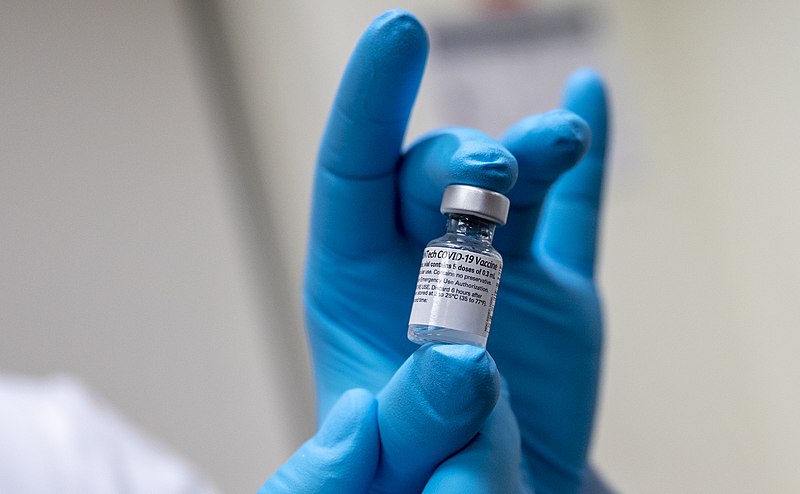News release
From:
COVID-19 vaccine hesitancy linked to childhood trauma
3 times more likely among those with experience of 4 or more trauma types
Reluctance or refusal to get jabbed against COVID-19 infection (vaccine hesitancy), may be linked to traumatic events in childhood, such as neglect, domestic violence or substance misuse in the family home, suggests research published in the open access journal BMJ Open.
Vaccine hesitancy was 3 times higher among people who had experienced 4 or more types of trauma as a child than it was among those who hadn’t experienced any, the findings show.
Childhood adversity is strongly linked to poor mental health. And some studies have suggested that mistreatment as a child may undermine subsequent trust, including in health and other public services.
To explore this further, the researchers wanted to find out whether childhood trauma might be linked to current levels of trust in health systems information; support for, and compliance with, COVID-19 restrictions; and intention to get vaccinated against the infection.
They drew on the responses to a nationally representative telephone survey of adults living in Wales between December 2020 and March 2021, a period during which restrictions to curb the spread of COVID-19 infection were in force.
Out of an initial 6763 people contacted, the responses of 2285 who met all the eligibility criteria and who had answered all the questions were included in the final analysis.
The survey asked about 9 types of childhood trauma before the age of 18: physical, verbal, and sexual abuse; parental separation; exposure to domestic violence; and living with a household member with mental illness, alcohol and/or drug misuse, or who was in prison.
And it collected personal details and experiences of long term health conditions, levels of trust in health service information on COVID-19, and attitudes towards COVID-19 restrictions and vaccination.
Around half (52%) of the respondents said that they hadn’t experienced any childhood trauma. But around 1 in 5 said they had experienced 1 type; around 1 in 6 (17%) reported 2-3; and 1 in 10 (10%) reported 4 or more.
Respondents who expressed little or no trust in NHS COVID-19 information and who felt government restrictions were very unfair were more likely to favour the immediate ending of regulations on social distancing and mandatory face coverings.
And they were more likely to say they had flouted the regulations occasionally and to profess reluctance or refusal to get jabbed.
For example, four out of 10 of those reporting low levels of trust in NHS COVID-19 information also reported vaccine hesitancy, compared with just 6% of those who did trust this source of information.
And a similar proportion of those who didn’t really trust NHS COVID-19 information admitted to flouting the regulations occasionally, compared with around 1 in 4 of those who did trust this source.
Increasing numbers of childhood traumas were independently associated with low levels of trust in NHS COVID-19 information, feeling that government restrictions were unfair, and wanting mandatory face coverings to be ditched.
Support for jettisoning mandatory face coverings was 4 times as high among those who had experienced 4 or more types of childhood trauma as it was among those who said they hadn’t experienced any. Younger age, male gender, and no history of long term conditions were also significantly associated with this stance.
Experience of 4 or more types of childhood trauma was also associated with a desire to end social distancing.
The likelihood of admitting to flouting COVID-19 restrictions occasionally rose in tandem with the childhood trauma count.
It was around twice as high among those who had experienced 4 or more types of trauma as it was among those who hadn’t experienced any—38% vs 21%---after accounting for associations with sociodemographic factors and previous COVID-19 infection or a history of long term conditions.
Vaccine hesitancy was also 3 times higher among those with a childhood trauma count of 4 or more and higher in younger age groups.
Based on all their findings, the researchers estimated the likely rates of vaccine hesitancy according to childhood trauma and age: these ranged from around 3.5% among those aged 70 and above with no experience of childhood adversity, to 38% among 18–29 year olds who had experienced 4 or more types of childhood trauma.
This is an observational study, and as such, can’t establish cause. And the researchers acknowledge several caveats to their findings.
Although in line with telephone surveys, the response rate was only around 36%, and the findings relied on personal recall. Women were also overrepresented, while the numbers of people from ethnic minority backgrounds were underrepresented.
But the researchers point out that people who have experienced childhood trauma are “known to have greater health risks across the life-course. Results here suggest such individuals may have more difficulty with compliance with public health control measures and consequently require additional support.”
This is important not only for the current pandemic but for other public health emergencies arising in the future, they suggest.
“A better understanding of how to increase their trust in health systems and compliance with health guidance is urgently required. Without consideration of how best to engage such individuals, some risk being effectively excluded from population health interventions, remaining at higher risks of infection and posing a potential transmission risk to others.”



 International
International



